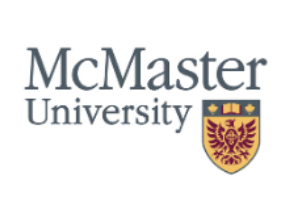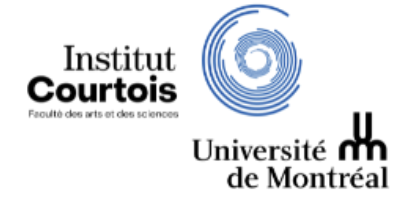CREATE for Accelerated Discovery
A national training initiative designed to prepare trainees across Canada for the growing integration of AI and automation in chemistry and material sciences and the rise of self-driving labs.
Artificial intelligence (AI), computational science, and automation are revolutionizing the way science is conducted. This revolution will be disruptive, increasing productivity and reshaping the labour force. If students in traditional science and engineering disciplines do not receive the interdisciplinary training required to leverage AI and automation to advance their research, they will be left behind, and Canada’s innovation economy will lag that of leading global competitors.
The CREATE for Accelerated Discovery (AccelD) is the first program to train HQP from across Canada in fields dedicated to creating materials and molecules for a rapidly approaching future of accelerated science, where AI-driven autonomous discovery replaces traditional discovery roles in academia and industry. AccelD will connect leaders in materials and molecules creation with experts in AI and automation, producing HQP with advanced skills in materials and molecule design, and the ability to develop and use SDLs that leverage AI and automation to accelerate discovery.
About
Context: Despite the adoption of powerful tools such as electron microscopes and high-throughput automation, the fundamental practice of scientific discovery has largely remained the same. However, science is transitioning from traditional intuition-driven methods to data-driven approaches, where AI is used for data analysis and modelling (AI for Science) and experimental planning (autonomous discovery). The combination of AI data-driven experimental design with advanced automation is transforming scientific discovery, making it faster, more efficient, and more reproducible. We refer to this as accelerated discovery.
In chemistry and materials science, accelerated discovery is manifested by the development of self-driving labs (SDLs). SDLs (figure 1) use AI to predict which materials or molecules will have the desired properties. Importantly, AI can consider far more options than human researchers can. Materials discovery is a prime example. The potential number of materials for some applications is astronomical (1060), far beyond what an individual researcher can conceptualize, let alone test. The AI-generated predictions are sent to an automated robotic lab to rapidly synthesize, characterize, and assess their properties for the given application. AI-based statistical methods are then used to analyze the data and propose the next set of experiments. This process allows SDLs to consider the most combinations with the fewest experiments, rapidly finding the optimal solution to complex high-dimensional problems, such as materials discovery, and allowing us to tackle the big challenges facing society that require new materials and molecules (e.g. antibiotics, green batteries, carbon capture).

Benefits for Participants
The AccelD program will equip participants with the skills necessary to lead in the AI and automation-driven transformation accelerating research and development productivity. Learning experiences include workshops, hackathons, and courses in: Accelerating Discovery
- AI for materials discovery and optimization
- Building and using self-driving labs
- Developing ethical frameworks to ensure accelerated discovery is sustainable and benefits all of society.
Responsible Discovery
- Developing values-based frameworks for responsible discovery
- Life Cycle Analysis for Environmental and Socially Sustainable Research
Leadership and Mobilization Benefits of Accelerated Discovery
- Inclusive leadership training for diverse teams
- Science communication and arts-based knowledge mobilization
- Innovation management and entrepreneurship
Participants are also eligible to for:
- One-month exchanges with academic or industry partners
- Accreditation on UofT’s Co-Curricular record
- Program partners
- University of Toronto
- University of British Columbia
- Université de Montréal
- University of New Brunswick
- McMaster University
- Natural Sciences and Engineering Research Council of Canada
- Canada First Research Excellence Fund
Training Objectives
Objective 1: Accelerated discovery - linking scientific discovery with AI and automation. Conventional natural sciences and engineering curricula do not offer training at the intersection of AI and robotics, and most graduate students are trained in labs that have not adopted sophisticated AI and automation approaches, let alone SDLs. The AccelD program will provide training in relevant areas, including AI for materials discovery and optimization, AI-driven experimental planning, data management, robotics, and laboratory integration.
Objective 2: Responsible discovery. As we accelerate the discovery of materials, it is essential to fully consider their social, economic, and environmental impacts. Are these materials sustainable throughout their entire lifecycle, from cradle to grave? Do they provide broad social and economic benefits—or could they cause indirect harm? AccelD will equip HQP with the ability to conceptualize and implement ethical approaches to discovery, ensuring that materials R&D is sustainable.
Objective 3: Leadership and mobilizing the benefits of accelerated discovery. Supporting the adoption of AI, automation, and accelerated discovery methodologies by Canadian industry will take more than graduating HQP with these skills. AccelD will provide participants with training in leadership and tools for effective science communication and knowledge mobilization (KM) so they can promote the uptake and manage integration of accelerated approaches into academic and industrial research operations.
Eligibility & Requirements
We encourage all AC Staff Scientists and trainees to participate in the AccelD program.
There are two ways trainees can become involved in the CREATE for Accelerated Discovery (AccelD).
- Apply for funding: CREATE Studentships & Fellowships
- Any trainee affiliated with an Acceleration Consortium professor is eligible to participate in the training programs: CREATE Member
Eligibility
- CREATE Studentships & Fellowships
- To be eligible for a CREATE stipend and travel funding, trainees are required to submit an application. Stipend recipients must also complete the requirements in the table below.
- Applicants can come from both natural science and engineering disciplines and non-natural science and engineering disciplines.
- Applicants must be registered or working at one of the following institutions: University of Toronto, University of Montreal, University of British Columbia, or University of New Brunswick.
- Identified an Acceleration Consortium-affiliated professor (full members / affiliate members) at one or more of these institutions to work with.
- Funding is provided for up to two years.
Table of Funding
*PIs are required to provide the additional funding required to top up salaries to institutional norms.
- CREATE Members
We encourage all trainees affiliated with the Acceleration Consortium to participate in the AccelD training programs.
- To be eligible to participate in AccelD programs, you need to register.
- To be eligible for a completion certificate and to request a Co-Curricular Record (CCR). You need to complete the requirements in the table below or demonstrate you have received equivalent training.
Application and Registration Forms
Applications for 2025 are closed and will reopen in the summer of 2026 for a fall intake. If you are interested in joining the program mid-year, please email acceleration.create@utoronto.ca
Team
- Christine Allen (co-lead) (UofT)
- Carlos Silva (co-lead) (UdeM)
- Co-applicants
- Alán Aspuru-Guzik (UofT)
- Stijn De Baerdemacke (UNB)
- Glen Berseth (UdeM)
- Avi Goldfarb (UofT)
- Rodrigo Alejandro Vargas Hernandez (Mc Master)
- Jason Hein (UBC)
- Michelle Murphy (UofT)
- Audrey Laventure (UdeM)
- Helen Tran (UofT)
- Arts-based KM lead
- Arnold Koroshegyi (UofT0)
Research
HQP will conduct research at the forefront of science. Like many other disciplines, the percentage of research papers in materials science using AI has increased by 10x since 2019. SDLs have been used in end-to-end discovery pipelines to discover new best-in-class materials, such as identifying which 1,000 experiments to run out of a possible 150,000 to maximize the chance of discovery, enabling the discovery of 21 new state-of-art laser materials in just two months; and developing optimal drug formulations with an ideal targeted release profile in just 11 experimental batches over a span of days. However, realizing the full potential of SDLs to accelerate discovery requires continued research to improve self-driving discovery cycles, and benchmarking them in real-world applications13. HQP will be involved in research across the scientific process, addressing significant challenges across four pillars: DESIGN, MAKE, TEST, and FUNCTIONAL MATERIALS, with closed-loop, iterative feedback to accelerate discovery (Fig. 2).
Pillar 1 – Design. In this pillar, HQP will explore how AI, trained on computationally expensive first-principle calculations, can predict material properties with greater accuracy. This approach will enable the exploration of chemical space up to 10,000 times faster14. HQP will also advance and implement active learning methodologies for optimal process design, enabling targeted outcomes in the fewest number of experiments15. These activities will be supplemented with opportunities to engage in social- sciences-led projects that assess how experiments can be designed most effectively using automation to maximize reproducibility and throughput.
Pillar 2 – Make. Automating chemical synthesis can enable reproducible, rapid materials discovery, yet many challenges exist in implementing these methods. In this pillar, HQP will research the development of new approaches that go beyond the state-of-art16, 17 for combinatorial chemical space exploration with unique in situ probes for real-time feedback; and how to use automation to better bridge materials processing from lab to pre-commercial scales18. HQP will collaborate with social scientists to assess how automated synthetic labs can be made more sustainable in their use of materials and consumables.
Pillar 3 – Test. Characterizing newly-synthesized materials is a critical and often rate-limiting step in the discovery process. In this pillar, HQP will research how to accelerate the accurate characterization of the structure and composition of materials, and how to accelerate advanced spectroscopic techniques to enable rapid probing of material photophysics, kinetics, and thermodynamics to gauge their potential in further downstream applications. HQP will collaborate with social scientists to explore the potential unintended negative consequences of the properties of the materials they develop."
Pillar 4 – Functional Materials. The improved materials developed in Pillars 1 – 3 have tremendous potential to transform high-value technology for Canadians, such as better drug formulations and low- cost energy storage. In this pillar, HQP will research how to rapidly optimize the formulation of new "drugs for patients using SDLs; and how SDLs can rapidly assess the performance of materials in photonics devices (such as photovoltaics and light-emitting systems) and energy storage/conversion technologies (such as batteries). HQP will collaborate with social scientists to assess the market potential, build a commercialization roadmap, and evaluate social acceptability of the advanced materials and systems they develop.
Through these activities, HQP will gain critical cross-disciplinary skills in how AI and automation are transforming scientific discovery (Gap 1). They will also work closely with social scientists to understand the ethical considerations of accelerated discovery (Gap 2) and learn how laboratory advances can be mobilized and translated to real-world challenges (Gap 3)."








